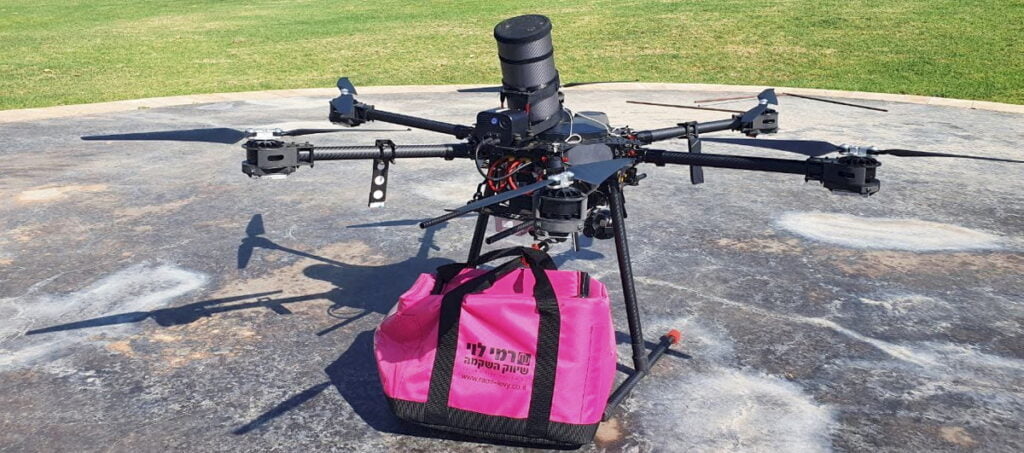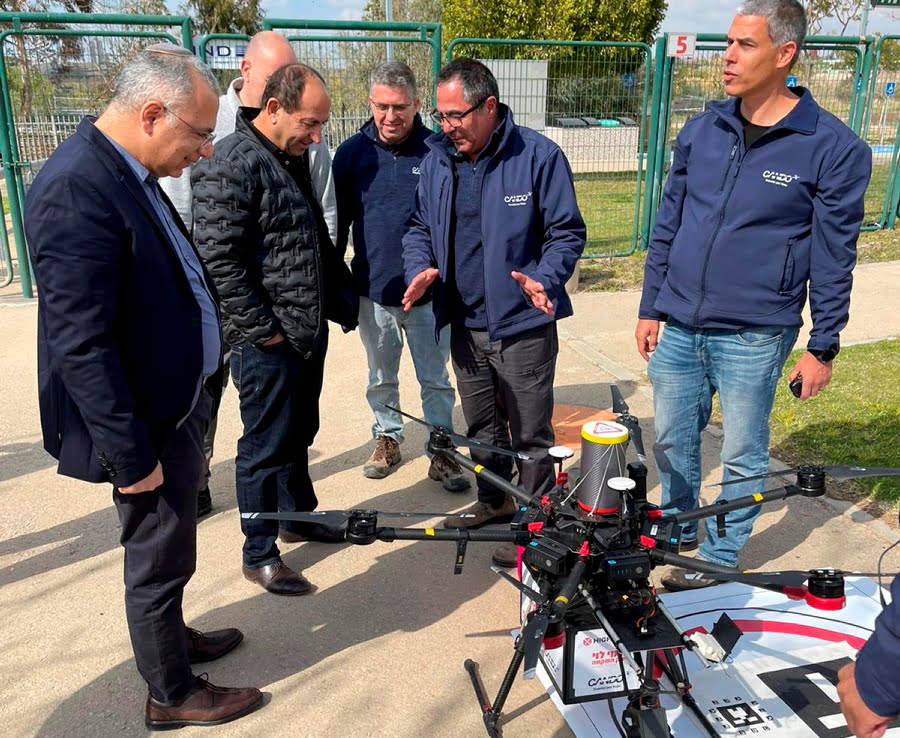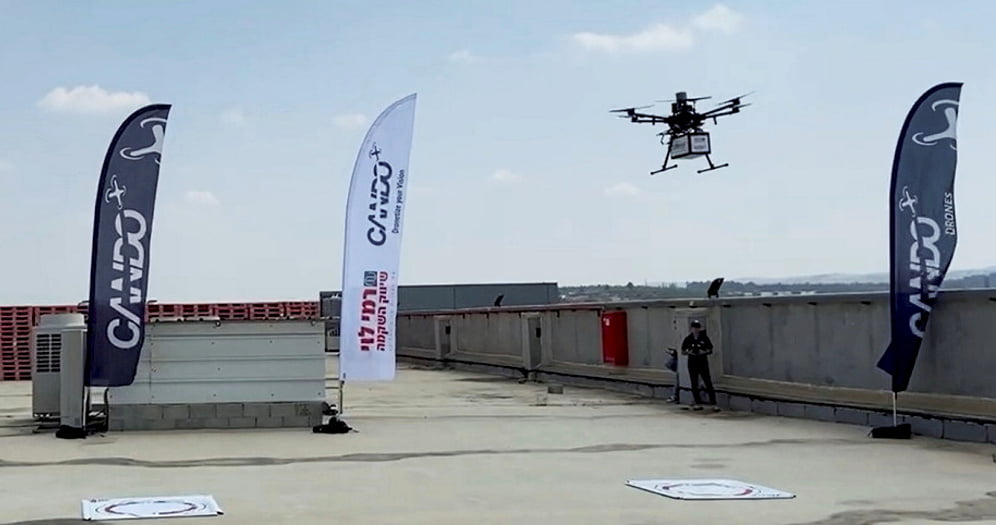Rami Levy chain launches pilot project for grocery deliveries with 60 flights a day
One of Israel’s biggest supermarket chains will start delivering groceries by drone next month in a pilot project.
Test flights have already taken place in Modi’in, central Israel, with two drones landing on the roof of the Rami Levy’s logistics center.
From 18 September workers at the center will be able to order their shopping for aerial delivery from a store at the nearby Yishpro Center.

Israeli startup Cando, which operates a fleet of UAVs (umanned aerial vehicles) for mapping, surveying, public safety and deliveries, expects to make 60 flights a day during the five-day trial and will conduct further flights for a week or two in December.
The company was founded in 2019 by three former senior IDF officers. Last month, Rami Levy, pioneer of discount food retail in Israel, revealed in a notification to the Tel Aviv Stock Exchange that it had bought a one-third share in it, for an undisclosed sum.
Cando says drone deliveries for Rami Levy could become part of normal operations within two years.
The small fleet of four or five drones deployed in trials will fly autonomously, using Artificial Intelligence (AI)-powered navigation and operational software, without any involvement from a human pilot, and flying beyond the line of sight.

“It’s not the full commercial process yet right but we are building every part of the chain, step by step,” Julia Katz, Vice President or Strategy and Infrastructure of Cando, tells NoCamels.
“There are a lot of components in this infrastructure that are not yet working, for example, the helipads that the drones land on.
“We have been building the infrastructure for commercial delivery for the last two years and finally we have signed to cooperate with Rami Levy.
“The first pilot project will be between the Rami Levy logistics center and the Yishpro shopping center, and back and the first customers will be Rami Levy employees.
Sign up for our free weekly newsletter
Subscribe“They’ll be able to order food or anything else from the store, and we will deliver it and build up our experience.”
Regulators will only allow the drones to carry a maximum 2.5kg load at the moment, but they are capable of handling 10kg or more.
A spokesman for the supermarket chain said its priority was to develop a system that would allow it to fly hundreds of drones from a single control room to multiple destinations.
Building the capacity to use drones for delivery is something that will help the whole ecosystem in Israel, says Katz.
“In 10 years’ time we’ll be using autonomous taxis to transport people. To be at that point in 10 years, we have to start building the infrastructure now. There are so many players in this ecosystem, we have to cooperate and build it together.

In a challenge last month, a Cando drone raced a motorcyclist to deliver ice cream to child 1km away, as the crow flies, in Beersheva, southern Israel. The drone arrived in three minutes and 37 seconds. The motorbike took 11 minutes.
Rami Levy is among the first supermarkets in the country to carry out drone delivery trials. In June its rival Yochanonof carried out a test flight in Yerucham, southern Israel, through an incubator company.
Supermarket drone deliveries are increasing in popularity worldwide. Amazon says it will begin one-hour drone deliveries, branded as Prime Air, in parts of the US – Texas and California – later this year.
In March, the Australian supermarket chain Coles launched direct drone deliveries to customers’ homes in as little as 10 minutes, with no delivery charge and no minimum spend, with a limited range of 250 items.
In the US, Walmart is expanding the drone delivery service it launched last year. By the end of 2022 it says it will reach 4 million households across the states of Arizona, Arkansas, Florida, Texas, Utah and Virginia. Customers pay an additional $3.99 and can expect their groceries within half an hour.
Related posts

Editors’ & Readers’ Choice: 10 Favorite NoCamels Articles

Forward Facing: What Does The Future Hold For Israeli High-Tech?

Impact Innovation: Israeli Startups That Could Shape Our Future




Facebook comments